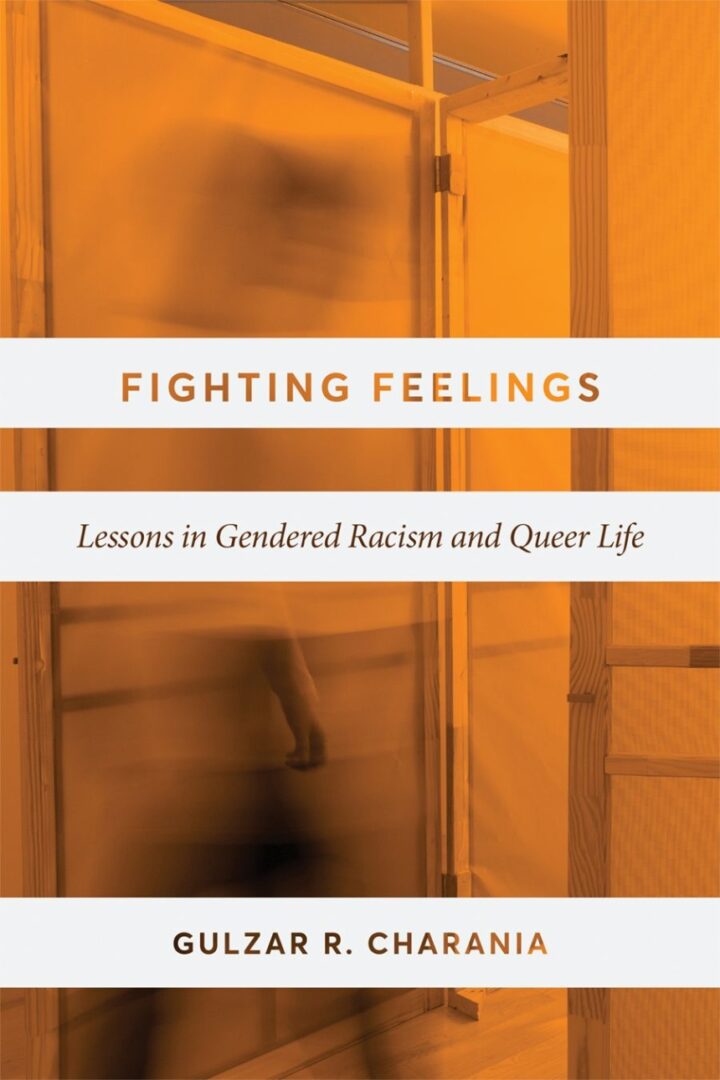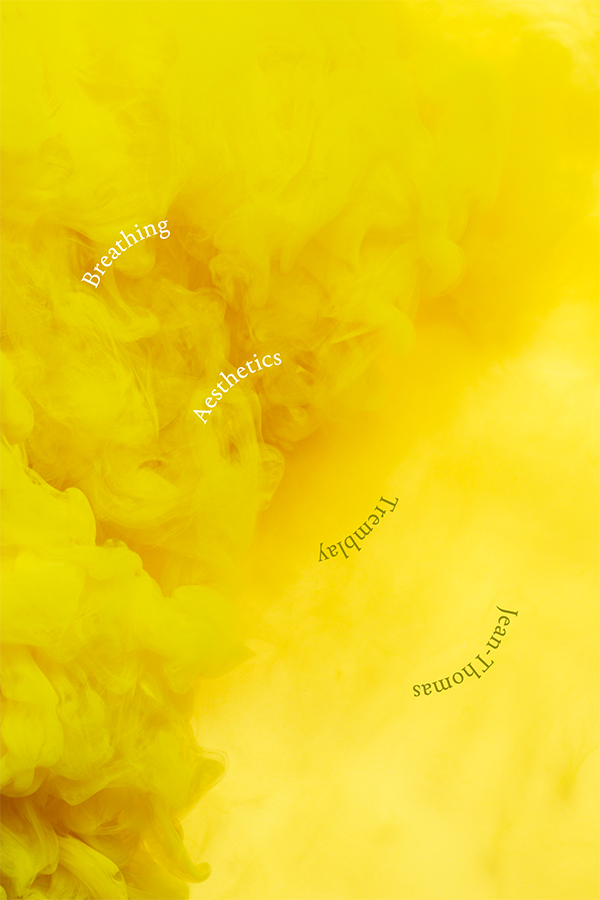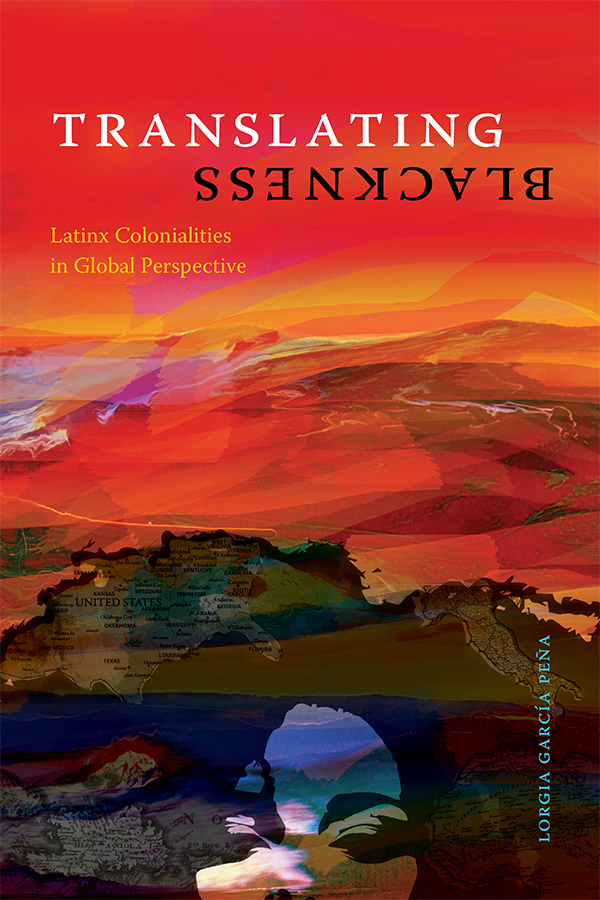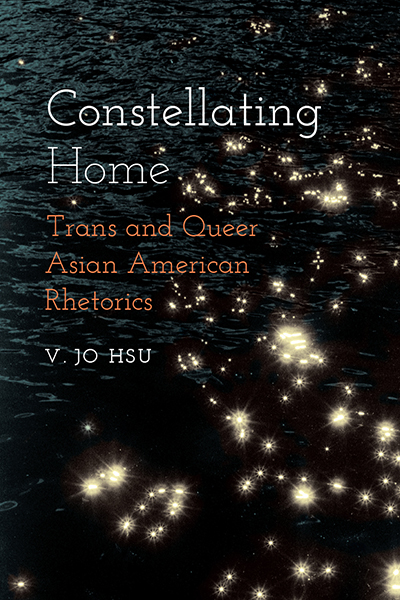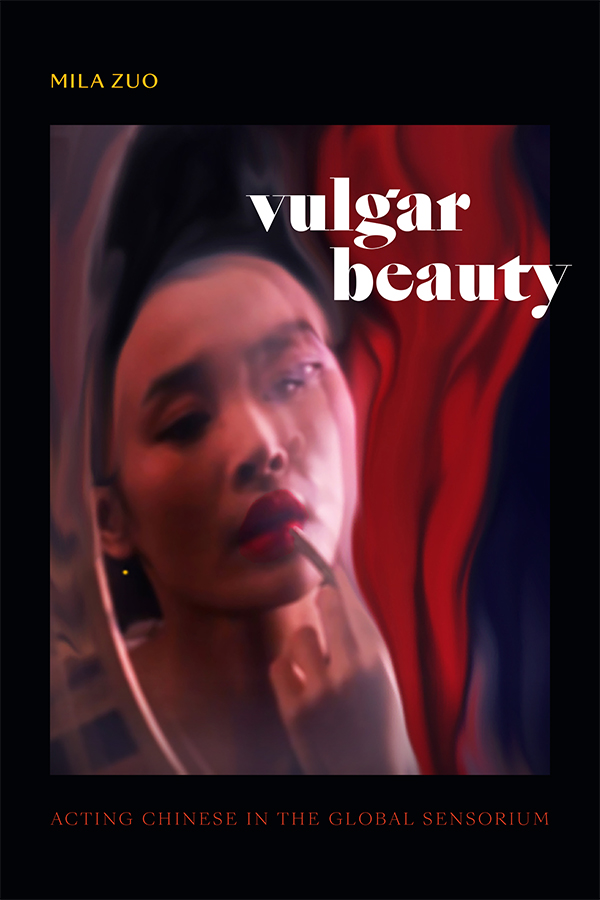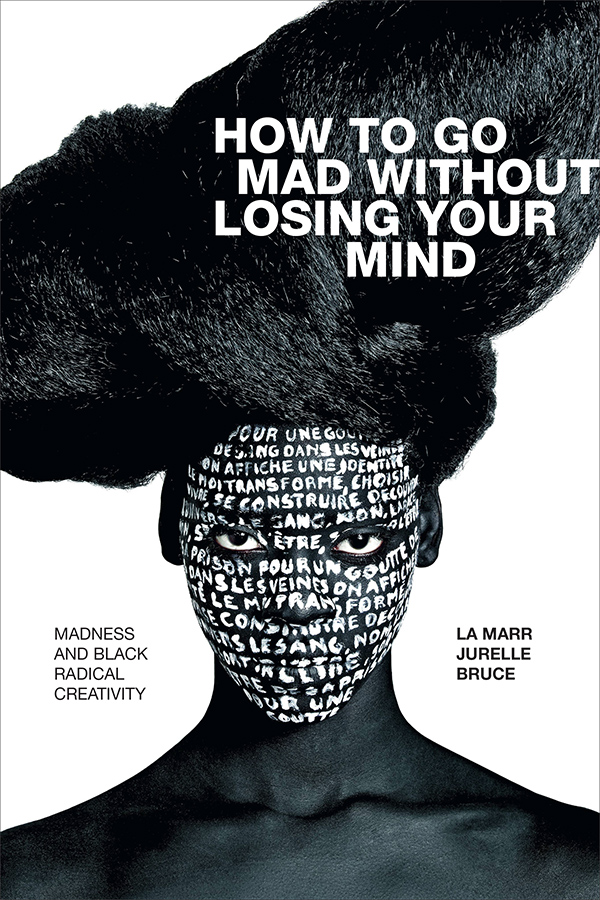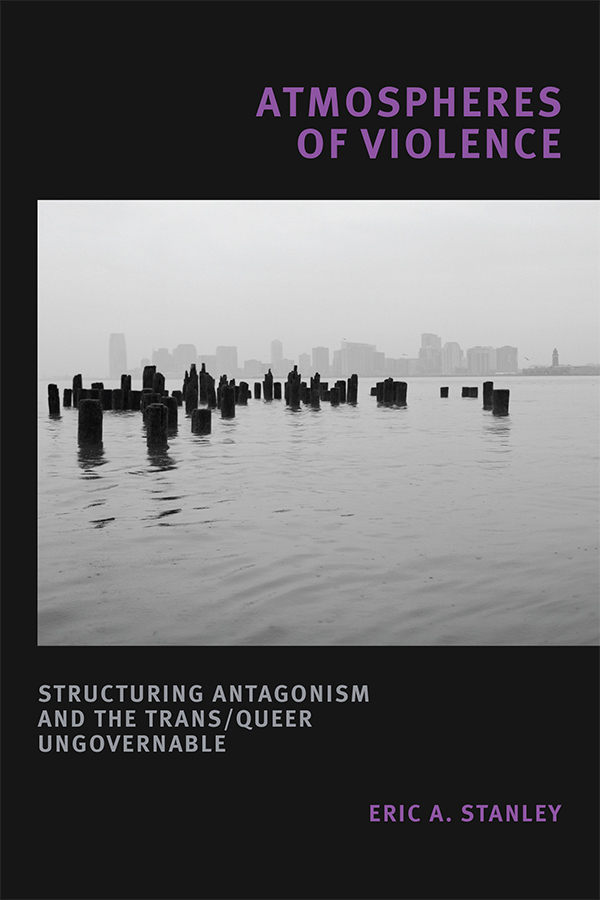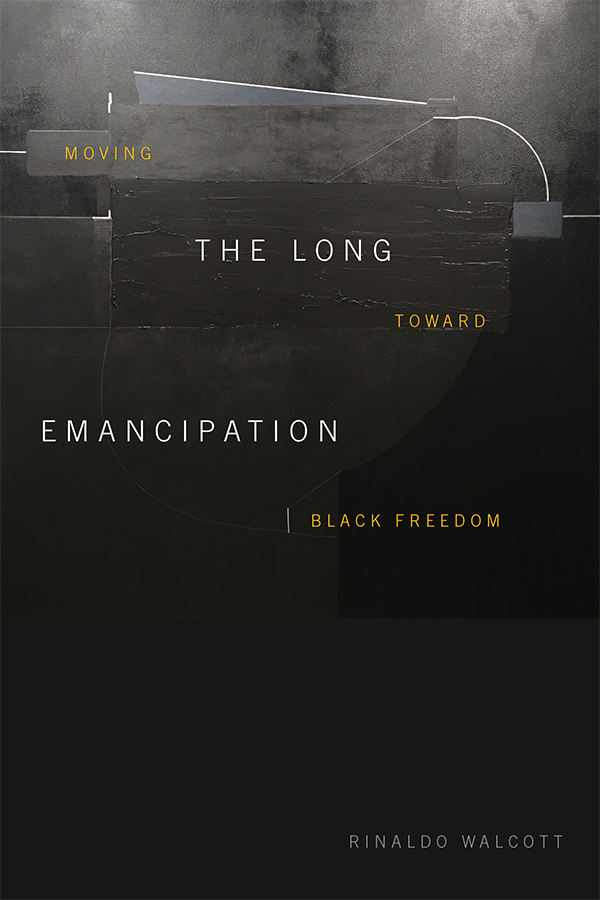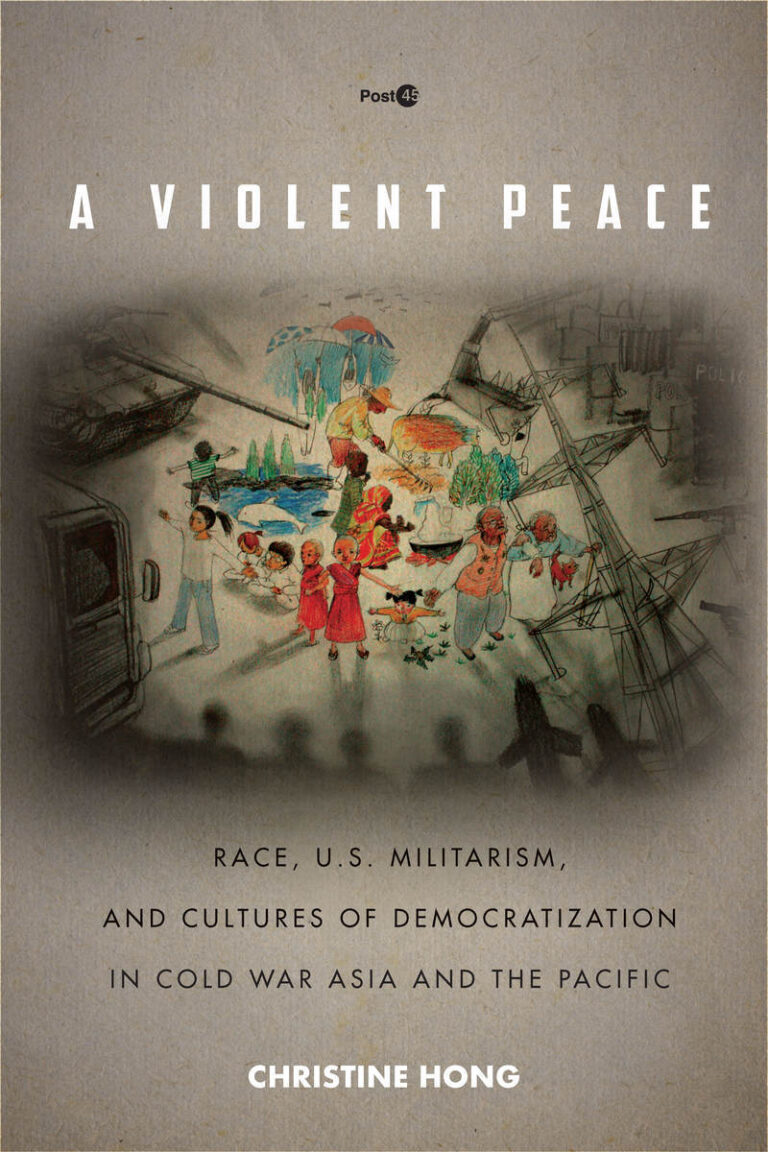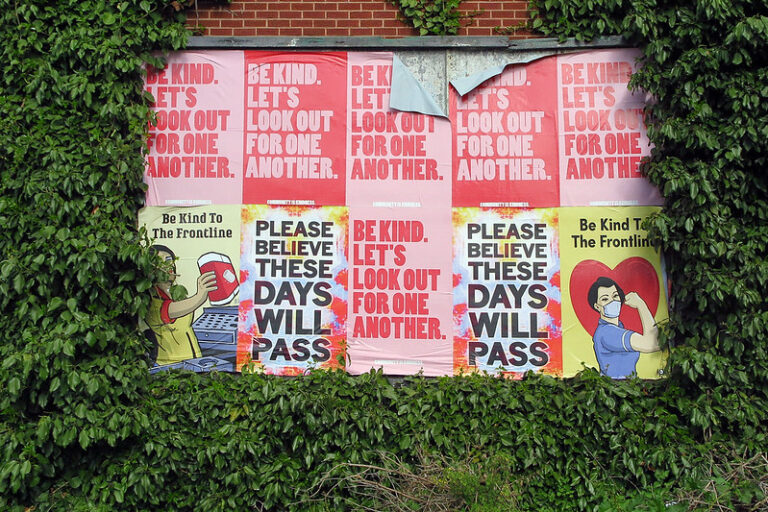In Fighting Feelings: Lessons in Gendered Racism and Queer Life, Gulzar R. Charania explores the gendered racialization of women of color through a plethora of interviews with her participants, paying specific attention to the intersection of identities that these women hold such as gender, race, sexuality, age, and socio-economic status. Charania centers the thoughts and experiences of racialized Black and women of color feminists to provide her readers with critical tools to navigate the lived experiences of racialized women while also acknowledging the violence of dominant narratives entrenched in white supremacy. By attending to the practices of scholars and theorists as well as the lives of her participants, Charania urges readers to reconsider the convergence of gender and sexuality in racialized hierarchies.
Keyword: race
Review of Why We Can’t Have Nice Things: Social Media’s Influence on Fashion, Ethics, and Property by Minh-ha T. Pham (Duke University Press)
In her second book, Why We Can’t Have Nice Things: Social Media’s Influence on Fashion, Ethics, and Property, Minh-ha T. Pham continues her examination of fashion’s digital labors, by analyzing what she terms crowdsourced intellectual property (IP) regulation. Pham argues that crowdsourced IP regulation follows a script that reaffirms the racial and class hierarchies that govern global fashion. A process that occurs across social media platforms, crowdsourced IP regulation does not actually adjudicate theft or ownership, but instead marks a site of struggle wherein the right to copy is publicly forged via commonsense, racialized ideas about who or what a “copycat” looks like. Pham explores this process through several case studies, as well as through the history of intellectual property within the fashion industry in the United States. Pham concludes her book with some reflections regarding the possibility of ethical fashion amidst a deeply unethical industry.
Review of Breathing Aesthetics by Jean-Thomas Tremblay (Duke University Press)
Jean-Thomas Tremblay’s Breathing Aesthetics draws our attention to how respiration as a cultural analytic maps the uneven distribution of risk in our contemporary moment. Intervening at the intersection of queer theory and the environmental humanities, Tremblay deciphers an archive of cultural texts that range from CAConrad’s ritualized poetry to Ana Mendieta’s elemental performance art and Toni Cade Bambara’s novel The Salt Eaters. In so doing, they reveal an understanding of how breath registers precarity across race, gender, and disability, while also serving as a mechanism for healing and care. This discerning analysis, combined with a focus on the exchange between body and milieu, makes a case for respiration as a distinctly ecological and embodied relation. Ultimately, Breathing Aesthetics provides crucial insight into how aesthetic expressions of respiratory variations evidence a tension between morbidity and vitality within bodies whose ability to breathe is most endangered.
Review of Translating Blackness: Latinx Colonialities in Global Perspective by Lorgia García Peña (Duke University Press)
In Translating Blackness, Lorgia García Peña offers a transnational conceptualization of Black Latinidad. Framing Black Latinidad as an epistemology, García Peña traces its historical and contemporary formations through the lives and the work of historical Black Latinx intellectuals as well as contemporary Black and Black Latinx individuals in the Carribean, Italy, and the United States. García Peña approaches Black Latinidad as produced through vaivén—coming and going across physical and symbolic borders of nation-state and migrant-citizen categories that characterizes the sociological position of Black Latinx individuals.
Review of The Digitally Disposed: Racial Capitalism and the Informatics of Value by Seb Franklin (University of Minnesota Press)
The Digitally Disposed: Racial Capitalism and the Informatics of Value examines the convergence between the recursive function of value in capitalist economies and the functions of abstraction, ascription, and disposal that govern digital systems. Franklin argues that digitality’s most pernicious effects are apparent in how digital systems create the illusion of frictionlessness, connectivity, and access, while at the same time working to reinforce a logic of exclusion that externalizes the material realities of depletion. Participation in value-mediated social relations has become mandatory due to the global reach and ubiquitous extension of the informational and economic systems under which workers labor. Race and gender are social categories which position marginalized workers, especially workers from the Global South, as unreliable components in the system, the digitally disposed. Franklin argues, using the study of communication systems, that this positioning is not a flaw of the system, but is rather the intentional effect of forms of capitalist accumulation that depend on the precarity of the lives of those who generate the labor that the system depends on. A valuable contribution to the study of digitality, neoliberalism, political economy, racial capitalism, and technological history, this work shows that the social effects of digitality are not new, but rather are an intensification of the exclusions and forms of marginalization upon which capitalism depends.
Review of Constellating Home: Trans and Queer Asian American Rhetorics by V. Jo Hsu (The Ohio State University Press)
Constellating Home: Trans and Queer Asian American Rhetorics by V. Jo Hsu examines how queer and trans Asian American (QTAPI) individuals have reshaped the narratives around their belonging in the United States or elsewhere. Hsu recognizes the ways pervasive narratives like the model minority myth have imbued the meaning of Asian American belonging with capitalist, heteronormative, ableist, racist, and patriarchal notions. Exploring oral histories, visual representations, essays, and numerous other forms of rhetoric, Hsu engages in “diasporic listening,” a method that unpacks how QTAPI individuals have wrestled with these pervasive narratives and found ways of redefining their belonging. By focusing on the stories of trans, nonbinary, disabled, and other minoritized groups within the Asian American diaspora, Hsu shows how these diverse and individual stories contribute more robust meaning around being and belonging as an Asian American.
Review of Skin Theory: Visual Culture and the Postwar Prison Laboratory by Cristina Visperas (New York University Press)
In Skin Theory, Cristina Visperas identifies how the captive body in the postwar era is positioned as the ideal test subject. She does so through a thorough interrogation of Albert Kligman’s primarily dermatological human experiments at Holmesburg Prison to argue that racial capture enables the research enterprise. Suturing conversations in Black studies, science and technology studies, and carceral studies, each chapter reads objects in relation to these experiments to argue that grounding its brutal procedures was a visual culture enabled by the figurative uses of the skin.
Only Together, We Flourish: The Importance of Friendship and Care in Navigating Anti-Asian Hate and Shielding During COVID-19
The COVID-19 pandemic and the response of the government of the United Kingdom have exacerbated deep-seated inequalities. People of color and disabled people have been disproportionately impacted during the pandemic. This essay has two authors, Sophie, a white disabled academic from England, and Denise, an Asian music therapist from Hong Kong; we are friends who live in Bristol. By examining our understanding of the pandemic through our lived experiences and identities, we provide transparency for engaging with our individual and shared perspectives. We use Mia Mingus’s concept of access intimacy to characterize our friendship as one which prioritizes accessibility and a deep understanding of each other’s realities whilst respecting and learning from our differences. We explore the idea of vulnerability and what it means to be made vulnerable during COVID, as well as the notion of ungrievability. Through engaging the concept of embodied belonging we address care as a necessity in response to all the ways in which this pandemic has highlighted and exacerbated vulnerability, ungrievability, and challenges to finding a sense of belonging. We demonstrate solidarity, empathy, joy, love, respect, and a deep reverence for each other and our journeys through hostile environments, providing a counterpoint to the neoliberal structures of oppression as we find ways to live, create, and flourish.
Review of Vulgar Beauty: Acting Chinese in the Global Sensorium by Mila Zuo (Duke University Press)
In Vulgar Beauty: Acting Chinese in the Global Sensorium, Mila Zuo examines how female Chinese actors perform “vulgar beauty” as a way of “worlding” to create community and belonging through affective shocks, and specifically, to produce feelings of Chineseness. By using the sense of taste, and specifically the flavors bitter, salty, pungent, sweet, and sour, as a framework, Zuo delves into close readings of television and cinematic case studies to look at the different ways vulgar beauty is deployed by these actors. In its analysis, this book offers a reconceptualization of feminine beauty outside of white western dictates and suggests that (vulgar) beauty can be utilized as a potentially disruptive and transformative force, specifically in destabilizing racial and patriarchal power structures.
Review of How to Go Mad without Losing Your Mind: Madness and Black Radical Creativity by La Marr Jurelle Bruce (Duke University Press)
How to Go Mad without Losing Your Mind offers a poignant study of what author La Marr Jurelle Bruce calls “mad methodology,” extending care and consideration to Black artists historically, fictionally, and contemporaneously rendered mad by oppressive anti-Black capitalist discursive practices. Reflecting on the creative practices of Buddy Bolden, Nina Simone, Lauryn Hill, and Dave Chappelle, among others, Bruce provides a clear-cutting analysis of the ways normative cultural logics work to figure Black art and protest as inherently mad.
Review of Atmospheres of Violence: Structuring Antagonism and the Trans/Queer Ungovernable by Eric A. Stanley (Duke University Press)
Eric A. Stanley’s Atmospheres of Violence: Structuring Antagonism and the Trans/Queer Ungovernable delves into the spectacle and disappearance that racialized anti-trans/queer violence produces. Stanley’s method is archival. By putting surveillance tapes, letters, films, and direct actions side by side, they trace structuring logics of modernity while emphasizing trans/queer practices that have and do escape such violent worlds. While this book underscores violence, hurt, and loss, it is more accurate to classify it as a text that tenaciously holds onto the possibility of livable worlds otherwise.
Review of The Long Emancipation: Moving Toward Freedom by Rinaldo Walcott (Duke University Press)
In The Long Emancipation: Moving Toward Freedom, Rinaldo Walcott argues, through the use of short essays, that the Black experience can be understood through the lens of the constant struggle for emancipation. For Walcott, true freedom for Black people was never attained with emancipation and in fact, emancipation is still an ongoing process. Each chapter interrogates an aspect of Black life and death that according to Walcott create the space for Black freedom to exist.
Review of A Violent Peace: Race, U.S. Militarism, and Cultures of Democratization in Cold War Asia and the Pacific by Christine Hong (Stanford University Press)
Christine Hong’s A Violent Peace examines local and global democratization projects and the many ways that postwar US military tactics and strategies functioned to suppress both counterrevolutionaries abroad in Asia and Black radicals at home in the US. Through literary and visual analyses of works by Ralph Ellison, Ōe Kenzaburō, Miné Okubo, Carlos Bulosan, James Baldwin, and W. E. B. Du Bois, Hong questions how to navigate US post-World War II policies that claim a period of democratized “peace” and racial integration while simultaneously dehumanizing “foreign” bodies through military tactics that police cultural and political belonging.
Feelings, Fascism, and Futures
The COVID-19 pandemic has exposed some of the most glaring inequalities within nations and across the globe. While the disruption caused by the pandemic has given rise to hopes for a cultural reset to address these structures of inequality—captured compellingly by Arundhati Roy in her vision of the pandemic as a portal—the sediments of inequality have proven hard to erode. In this contribution, I explore this regressive impulse by honing in on the affect of restraint. While restraint is not ordinarily characterized as such, in the pandemic it has been a defining feature of our lives. However, it was not afforded equally. I begin by showing how restraint has become racialized, serving as a political tool to suppress protests, notably Black Lives Matter. I then move to show how globally, too, there has been an imbalance in who is—and what countries are—expected to practice nonintervention, linking both domestic and international uses of restraint to these preexisting structures of inequality. I end by proffering a vision for how, despite all these obstacles, the pandemic has also offered ways to bypass the state and form new social formations.
Review of Distributed Blackness: African American Cybercultures by André Brock, Jr. (New York University Press)
In Distributed Blackness: African American Cybercultures, interdisciplinary scholar André Brock, Jr. offers a timely and powerful examination of Blackness in the digital age. The book centers Black technology use from Black perspectives and investigates the online distribution of Black discourses. In six exploratory chapters, Brock reconceptualizes Black technoculture in a way that corrects deficit models of Black digital practice.
